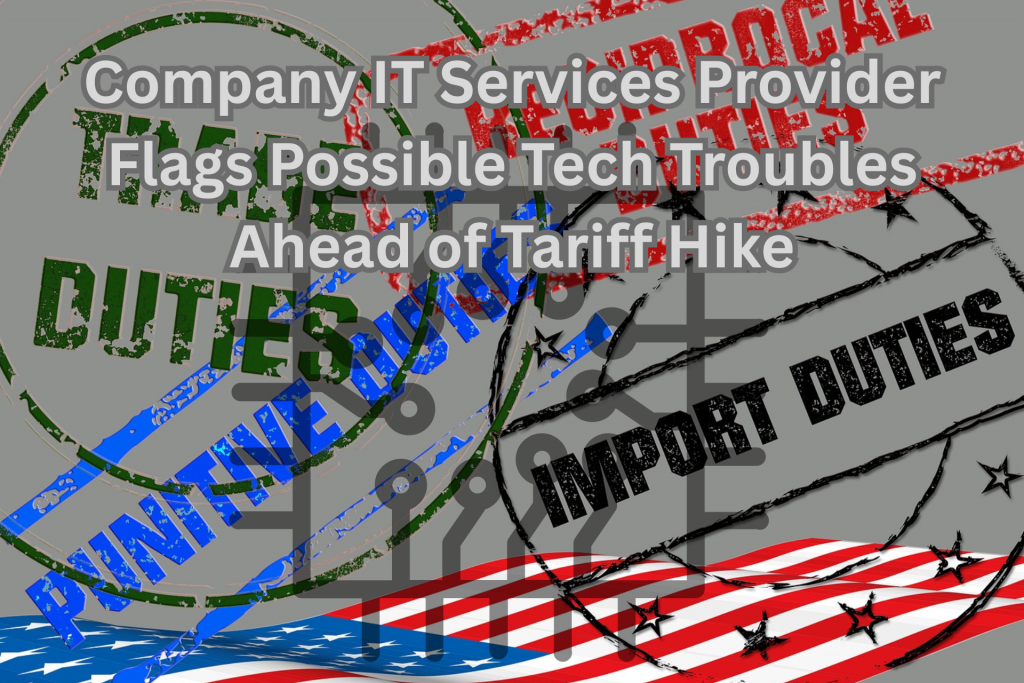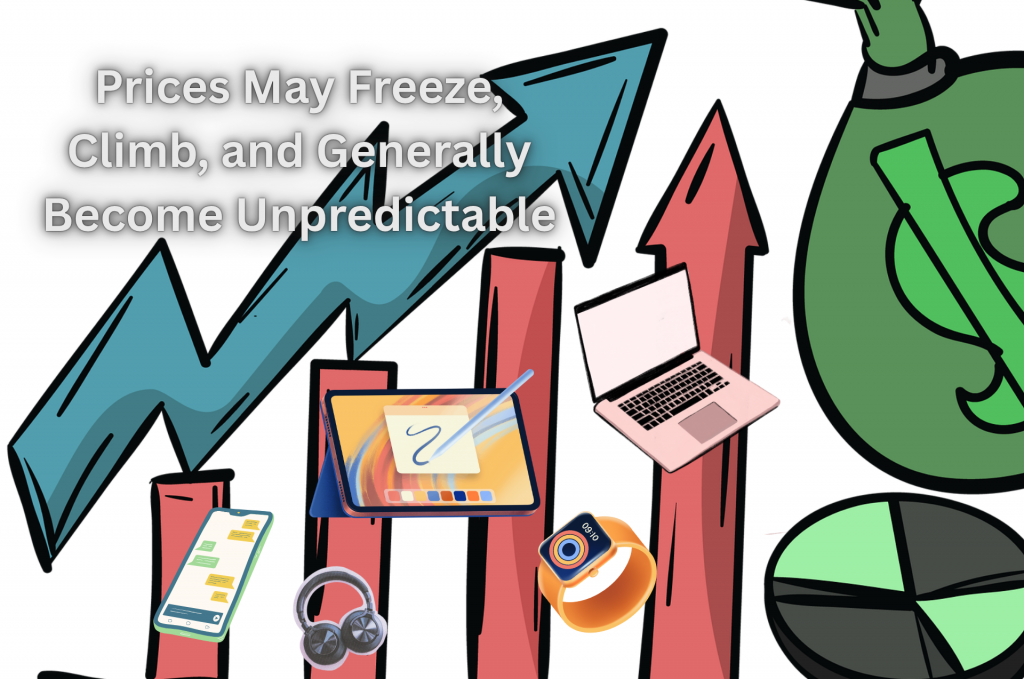The US government’s recent introduction of heavy tariffs is making almost every import more expensive, especially those from China. The effect of the April tax increases has resulted in Chinese imports being charged a punishing 54% tariff. Taiwan and Vietnam aren’t spared either, with tariffs of 32% and 46% respectively—although Taiwan’s semiconductors are currently exempt. Businesses providing company IT services warn that this does not only affect wallets but can also transform the world of technology. Aside from the rise in prices, the tech industry may face longer-term problems because of these changes. This may lead to less innovation, fewer goods being released, and unpredictable pricing.

Company IT Services Provider Flags Possible Tech Troubles Ahead of Tariff Hike 1
Tech Availability Could Shrink Fast
Once considered a luxury, personal computers were mainly owned by hobbyists and the wealthy. As time passed, more people were able to use technology. When prices dropped and many more people wanted toys, companies supplied a wider range of products. However, experts in company IT services said that even that is changing. This is because many will cut back on things like luxury items as a result of tariffs that result in higher prices. In effect, companies also face less pressure to bring out new products and freeze efforts on new developments.
Additionally, smaller brands could remove their entire product lines from retail businesses. Since demand cannot be accurately predicted, companies are expected to limit production or stop altogether. Company IT services providers warn that this would be far from the status quo where people have a lot of choices.
Prices May Freeze, Climb, and Generally Become Unpredictable
In most cases, competition helps keep the cost of tech products low. When demand goes up, the process gets more efficient and new ideas bring more benefits. However, once there isn’t enough supply, these benefits no longer exist. Because of tariffs, you should expect laptops, phones, and hardware to be priced at the same level or become more expensive, according to company IT services providers.
For many years in the past, Intel charged the same price for 4-core, 8-thread CPUs. Back in 2010, the original 10-core CPU cost users $1,723. It was AMD’s Ryzen chips which delivered more power and lower prices, that led to this change. Intel was obliged to give a better proposal. It is easy for companies to price their products high if there is no rival in the industry or clear product selection.
At one time, there was a consistent way for tech to be priced. However, the predicted prices are now being ruined by higher production costs and taxes. Moving a business to a new country not only takes valuable time, but also requires spending money on staff, training and setting up logistics. For many providers of company IT services, those costs are more than they can handle. While bigger brands might push off increasing their prices, it will be tough for smaller companies.

Company IT Services Provider Flags Possible Tech Troubles Ahead of Tariff Hike2 1
New Products Might Come Slower and Update Will Come Less Often
Tariffs may cause a delay in seeing new devices. Many companies refrain from investing in development when the market is unstable. Ultimately, customers won’t upgrade when updates are minor, yet prices increase. As a result, we see less variety in new models. It’s possible that designs such as tri-fold phones or foldable displays may be held back.
Investing in them can be unpredictable, cost a lot and they’re hard to get rid of in a slow economy. You can say this about inexpensive products as well. Since high-end gear is valuable to Nvidia and AMD, those who are cost-conscious might be ignored. Even so, Intel is still operating in the server market, although its participation is not as huge. Even after tech companies introduce new standards, they can take many years to go from idea to market. What once came about fast may now progress painfully slowly.
With the tariffs, the price for updates remains high but there aren’t much better features. Hence, people will keep using older ones. As a result of no one upgrading, developers won’t be motivated to develop new models. Company IT services providers say that this reduces the speed of their processes, and development becomes less likely for bold and creative technology to shape the future.
Even Manufacturers Are Confused
Even manufacturers and tech companies are still trying to understand the new tariffs. Experts admit it’s still unclear to them how they should apply machine learning. Because of this, companies must make adjustments on the spot. Because of this confusion, delays happen, and costs increase.
Pricing in retail could become disorganized, such in the case with the graphics cards. As stock goes down, prices skyrocket. Then, prices increase further as they pass through resellers. People who shop online often pay more money. With all these confusions, buying tech should now be planned well ahead instead of the usual pick and buy.
How to Prepare for the New Tech Landscape
Tariffs are not only about setting prices. They influence the process of making, releasing, and using products. Businesses and consumers should reconsider technology. After all, tariff updates can happen very fast. Don’t immediately spend all your money on new hardware, company IT services experts suggest. Consider continuing to use your old equipment until it’s no longer working. Moreover, you can check out used or refurbished goods to find good prices instead of getting brand new ones. Talking to your suppliers about possible shortages or delays early can help businesses avoid issues. Review when technology updates are needed and change your budget accordingly. If you plan well, you can usually avoid sudden big surprises.
A Changing Tech World
Prices, regular updates, and a broad selection could become a thing of the past. Because of tariffs, progress in innovation has slowed, products are harder to find, and overall costs are rising. A few companies may respond to changes by introducing new plans or cutting their prices. Still, for most people, getting what they want from a business will likely become more difficult.
Understanding these shifts helps you adjust more easily. We at EB Solution are responsive to the challenges of modern times. We are a reliable company IT service provider and will be able to assist you well in making sure your IT infrastructure is in optimum efficiency despite these challenges.
